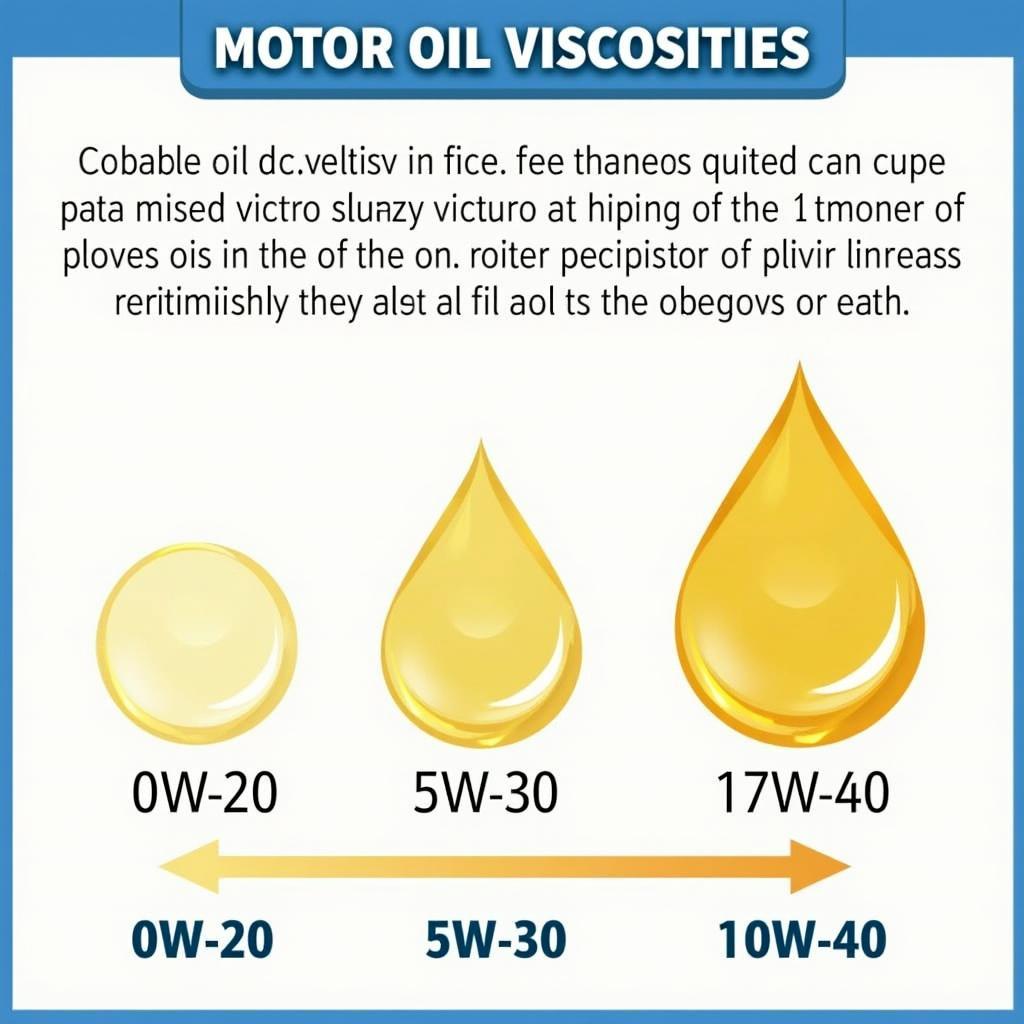Engine oil is the lifeblood of your engine. Choosing the right one can significantly extend your vehicle’s lifespan, while the wrong choice can lead to costly repairs. This article provides a comprehensive comparison of different engine oils and helps you make the optimal choice for your vehicle. We cover the different oil types, viscosity grades, and the key properties you should look for.
Understanding Engine Oil: More Than Just Lubrication
Comparing engine oils means understanding the various aspects of this vital fluid. It doesn’t just lubricate the moving parts of the engine, thus reducing friction and wear, but also cools the engine, protects against corrosion, and keeps the engine clean by picking up contaminants. Choosing the right oil is therefore crucial for the performance and longevity of your engine. Imagine an engine running on the wrong oil – like an athlete trying to run a marathon in the wrong shoes.
 Engine Oil Comparison: Viscosity Grades Overview
Engine Oil Comparison: Viscosity Grades Overview
Viscosity: Key to Choosing the Right Oil
Viscosity, or the thickness of the oil, is a crucial factor. It is indicated by two numbers, e.g., 5W-30. The first number (5W) indicates flowability at low temperatures – the lower the number, the better the cold start. The second number (30) describes viscosity at high temperatures. A higher value means a thicker oil film at operating temperature. Choosing the correct viscosity depends on the manufacturer’s specifications and climatic conditions. “The right viscosity is like the perfect shoe for the occasion,” says Dr. Karlheinz Müller, author of “Motor Oils in Detail”. Oil that is too thin can lead to insufficient protection at high temperatures, while oil that is too thick makes cold starts difficult and increases fuel consumption.
Mineral, Synthetic, or Semi-Synthetic Oil? Making the Right Choice
Besides viscosity, the type of oil also plays an important role. Mineral oils are cost-effective but offer less protection than synthetic oils. Synthetic oils are chemically produced and provide higher performance and stability, especially under extreme conditions. Semi-synthetic oils are a blend of both and offer a good compromise between price and performance. Synthetic oils are generally recommended for modern high-performance engines. According to a study by the “Institute for Automotive Technology”, using synthetic oil can extend an engine’s lifespan by up to 20%.
Specifications and Standards: Navigating the Oil Jungle
The multitude of oil specifications can be confusing. Pay attention to the standards prescribed by the vehicle manufacturer, such as ACEA or API. These standards guarantee that the oil meets your engine’s requirements. “Adhering to manufacturer specifications is crucial for ensuring engine performance and lifespan,” emphasizes engineer Anna Schmidt in her book “Modern Engine Technology”. Do not ignore these specifications to avoid costly damage.
Engine Oil Comparison: Conclusion
Choosing the right engine oil is crucial for the health and longevity of your engine. Consider the viscosity, oil type, and manufacturer specifications to achieve optimal performance. Compare different products and choose an oil that meets your individual needs.
Need Help Choosing Oil?
Contact Us! Our experts at AutoRepairAid are happy to assist you with advice and support. We offer comprehensive consultation and support regarding car repair and maintenance. Reach us via WhatsApp at + 1 (641) 206-8880 or by email at [email protected].
We look forward to helping you!


